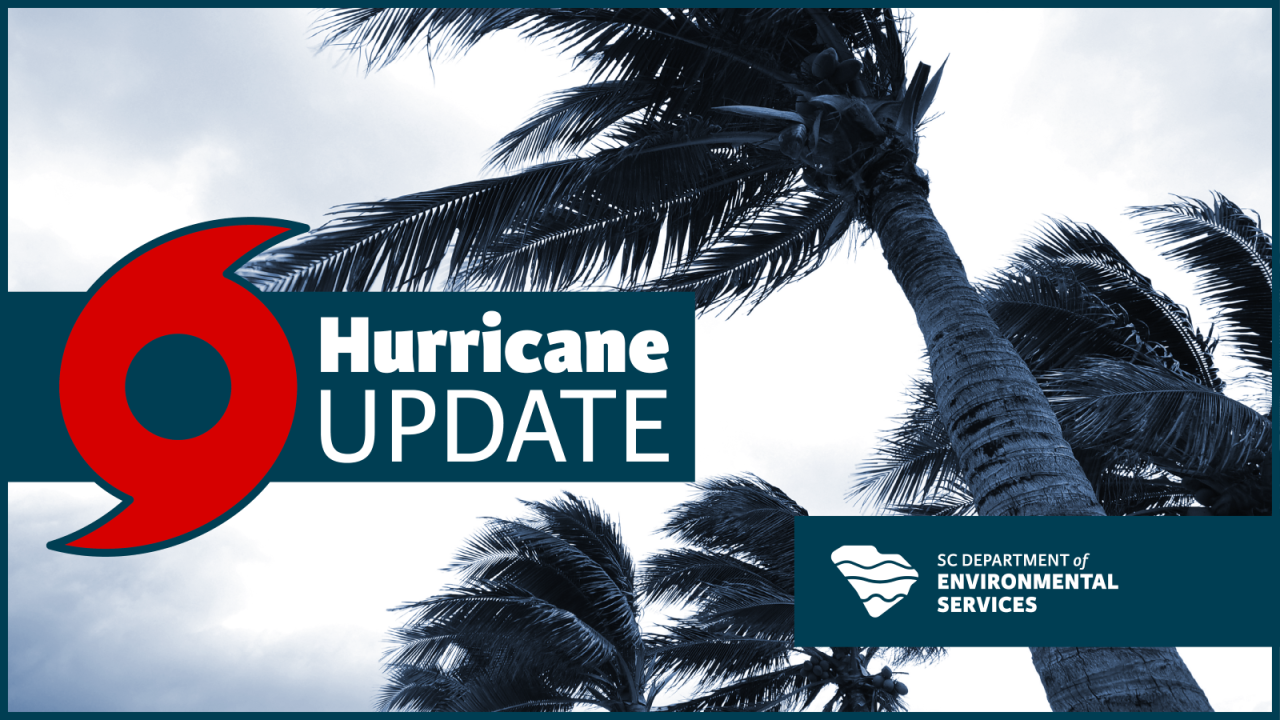Hurricanes & Floods

As part of the State Emergency Response Team (SERT), the South Carolina Department of Environmental Services (SCDES) closely monitored Tropical Storm Imelda and Hurricane Humberto in coordination with local emegency manager, S.C. EMD, the Governor's Office and fellow state agencies.

